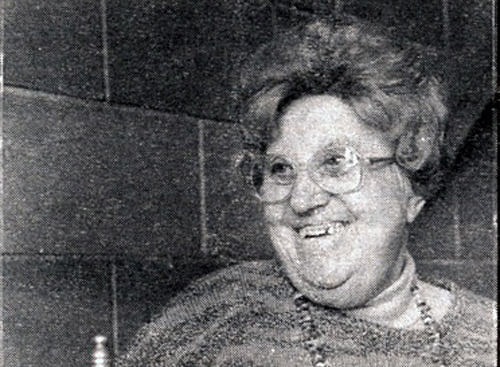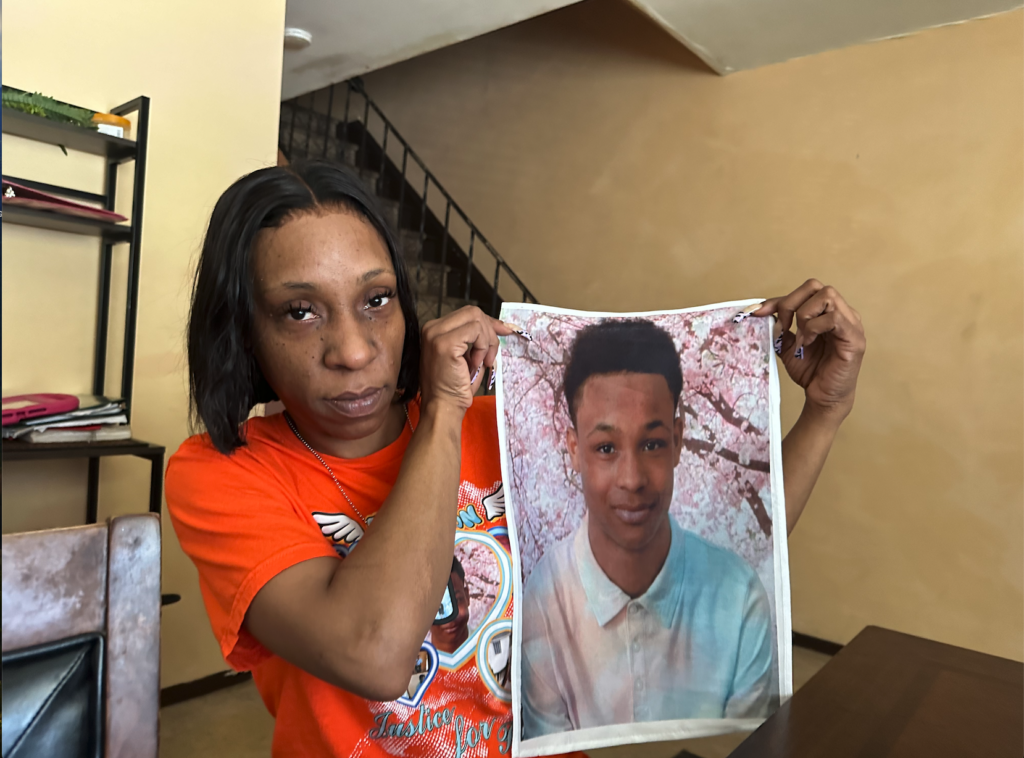Feliska Sawicka, ‘larger-than-life’ founder of Polish School, dies at 93

Feliska Sawicka, the founder and long-time principal of the St. Maximillian Kolbe Polish School in Polish Town, died on Friday at the age of 93 after a long illness.
Those who worked alongside her at the school said it was her greatest passion since it allowed her to help local children — and adults — connect with their Polish heritage.
“The Polish School was her baby,” said Bozena Mahmoud, who succeeded Ms. Sawicka as principal in 2010. “She devoted her life to it.”
Ms. Sawicka grew up in a small town called Michalowka in the eastern half of Poland, according to Ms. Mahmoud. She immigrated to the United States in 1960 and in 1972, she opened the Polish School in Riverhead.
• Get the news to come to you: like us on Facebook and follow us on Twitter.
“We wanted to teach youngsters to know who they are and to continue their tradition and culture,” Ms. Sawicka told the News-Review in 1995. “It’s very practical and very fruitful to know another language. When you speak another language, you are two persons in one.”
In its early years, Ms. Sawicka’s school served several functions: it taught classes on Polish history and culture to children just as it does now. But it also served as a center for the Polish community.
“[Ms. Sawicka] helped everybody who came to this country in the beginning,” Ms. Mahmoud said. “She would help them get their bearings. She helped them get their papers, learn the language — she was a very helpful person.”
These days, the school offers four-hour classes every Saturday to teach its students Polish language, history and traditions.
The school, which operates out of the St. Isidore Catholic School on Marcy Avenue, received substantial recognition under decades of Ms. Sawicka’s guidance. In 1975, a man named Franciszek Gajowniczek blessed the school’s banner.
Mr. Gajowniczek was in a German concentration camp with the school’s namesake, Maximillian Kolbe, when a soldier selected him for execution. He survived, however, because Mr. Kolbe offered his life in exchange.
Ms. Sawicka herself received the Commission of National Education Medal in 1994 and the Gold Cross of Merit, one of Poland’s highest civilian honors, in 1996.
“Without her, this Polish school would not exist,” said Agnes Gomula, a teacher at the school. “Once I think about Polish school, I always think of Feliska.”
Before Ms. Mahmoud took over as principal, she had worked under Ms. Sawicka for 12 years, and she thought her predecessor was “larger than life.”
“‘I can’t’ and ‘It’s not possible’ were not in her vocabulary,” Ms. Mahmoud said. “She wasn’t easy. She wasn’t somebody mellow. She was kind of tough, but to achieve what she achieved, she had to be.”
Ms. Sawicka was incredibly close with her sister,Czeslawa Zakrzewska.
“Her sister was everything to her,” Ms. Mahmoud said. “She was her only family here in America, and her sister devoted the last three years to caring for her.”
On a personal level, her colleagues recalled Ms. Sawicka as a woman who blended warmth with unyielding dedication.
“She was friendly and passionate, and she had a great personality,” Ms. Gomula said.
After all the memories, Ms. Gomula had one final idea to offer.
“We should find something to give her name to honor her,” she said. “She’s worth that.”
Visiting hours for Ms. Sawicka are Sunday, from 7 to 9 p.m. and Monday, from 2 to 4 and 7 to 9 p.m. at McLaughlin Heppner Funreal Home. The funeral Mass will take place at 11 a.m., Tuesday, at St. Isidore R.C. Church. Burial will be at the church cemetery.
Photo caption: Feliska Sawicka in 1995. (Barbaraellen Kock file photo)
Correction: An earlier version of this story misspelled the name of Ms. Sawicka’s sister.








